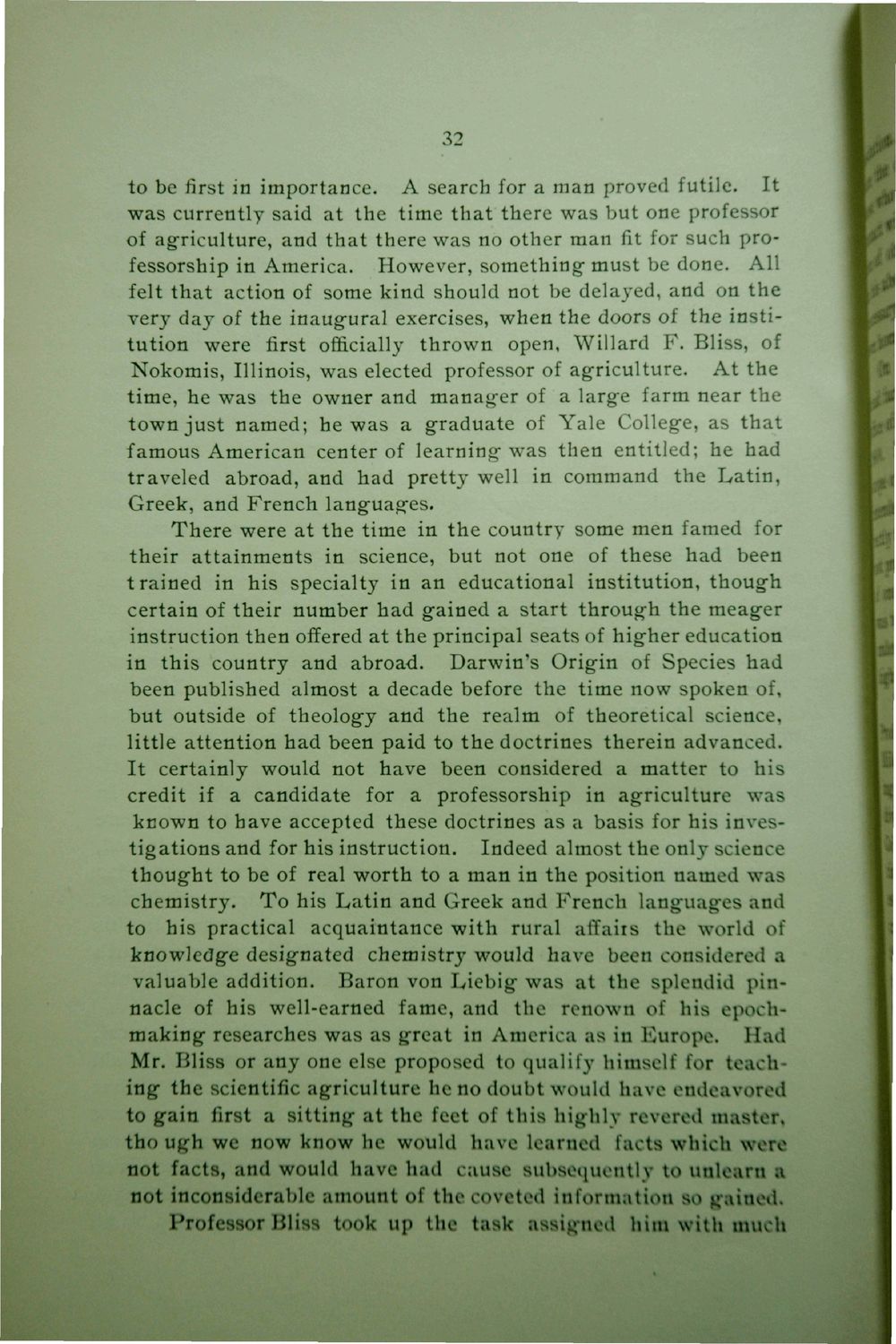| |
| |
Caption: Dedication - Ag Building
This is a reduced-resolution page image for fast online browsing.

EXTRACTED TEXT FROM PAGE:
32 to be first in importance. A search for a man proved futile. It was currently said at the time that there was but one professor of agriculture, and that there was no other man fit for such professorship in America. However, something must be done. All felt that action of some kind should not be delayed, and on the very day of the inaugural exercises, when the doors of the institution were first officially thrown open, Willard F. Bliss, of Nokomis, Illinois, was elected professor of agriculture. At the time, he was the owner and manager of a large farm near the town just named; he was a graduate of Yale College, as that famous American center of learning was then entitled; he had traveled abroad, and had pretty well in command the Latin, Greek, and French languages. There were at the time in the country some men famed for their attainments in science, but not one of these had been trained in his specialty in an educational institution, though certain of their number had gained a start through the meager instruction then offered at the principal seats of higher education in this country and abroad. Darwin's Origin of Species had been published almost a decade before the time now spoken of, but outside of theology and the realm of theoretical science, little attention had been paid to the doctrines therein advanced. It certainly would not have been considered a matter to his credit if a candidate for a professorship in agriculture was known to have accepted these doctrines as a basis for his investigations and for his instruction. Indeed almost the only science thought to be of real worth to a man in the position named was chemistry. To his Latin and Greek and French languages and to his practical acquaintance with rural affairs the world of knowledge designated chemistry would have been considered a valuable addition. Baron von Liebig was at the splendid pinnacle of his well-earned fame, and the renown of his epochmaking researches was as great in America as in Europe. Had Mr. Bliss or any one else proposed to qualify himself for teaching the scientific agriculture he no doubt would have endeavored to gain first a sitting at the feet of this highly revered master, tho ugh we now know he would have learned facts which were not facts, and would have had cause subsequently to unlearn a not inconsiderable amount of the coveted information so gained. Professor Bliss took up the task assigned him with much
| |